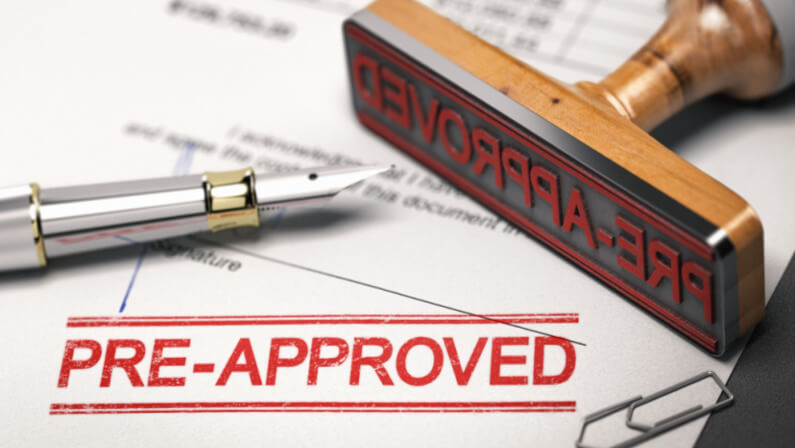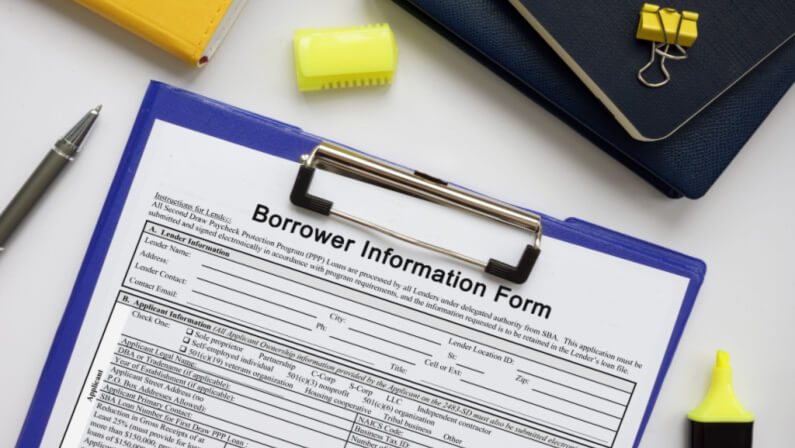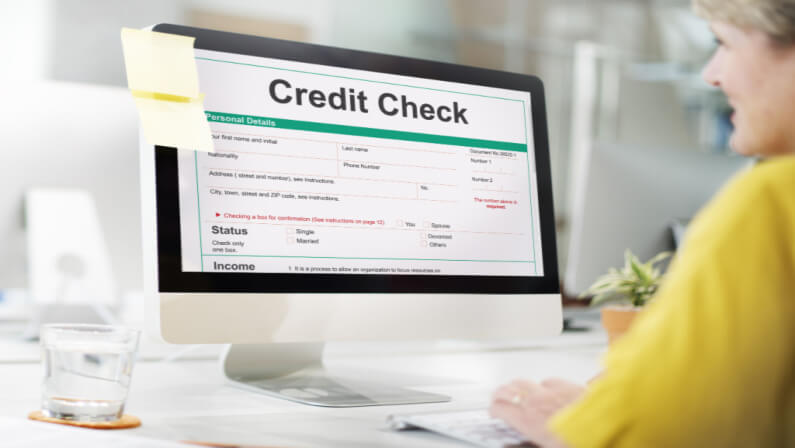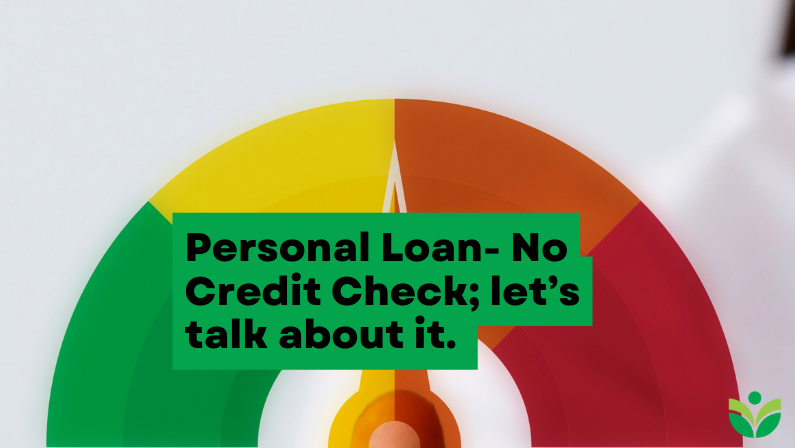How to Get Preapproved for a Mortgage: Understanding the Process
James Leon
07/13/2022
Financial Literacy

Understanding the mortgage preapproval process can help you get the best home loan available. Lenders will look at your credit score, income, debts, and other financial information in order to make a decision on whether or not to approve you for a mortgage.
What Is a Preapproval for a Mortgage
When you are in the market for a new home, one of the first things you will need to do is get preapproved for a mortgage. This means that the lender has looked at your credit score and financial history and has said that you are likely to be approved for a loan up to a certain amount. It is not a guarantee that you will get the loan, but it is a good indication of your odds.
Is a Pre-qualification the Same as Preapproval?
When you are buying a home, you will likely go through the process of getting pre-qualified or pre-approved for a mortgage. But what’s the difference between the two? And which one should you get?
Pre-qualification is the first step in the mortgage process. You provide some basic information about your income and debts to a lender, and they will tell you how much money you could borrow. This is not a guarantee that you will be approved for a mortgage, but it does give you an idea of what you might be able to afford.
Preapproval is more formal than pre-qualification. You provide detailed information about your finances to a lender, and they will approve or deny your loan application.

Why Should You Get Preapproved for a Mortgage
The home buying process can be daunting, especially if it’s your first time. One of the best ways to make sure the process goes as smoothly as possible is to get pre-approved for a mortgage.
Here are a few reasons you should get pre-approved for a mortgage:
- It shows you’re serious about buying a home.
- You’ll know how much house you can afford.
- It speeds up the loan process once you find a house.
- You’ll have a better chance of getting the interest rate you want.
Mortgage Preapproval Process
Mortgage pre-approval is the process of verifying a borrower’s financial information and credit history to determine whether they are qualified for a mortgage. The preapproval process typically takes about two weeks and includes pulling a credit report, verifying employment and income, and checking the borrower’s debt-to-income ratio.
Lenders will issue a preapproval letter to borrowers that indicate the maximum loan amount for which they are approved. Borrowers should be aware that preapproval letters are not guarantees of loan approval, and that lenders may still deny a loan even after issuing a preapproval letter.
The mortgage preapproval process is an important step in the home buying process, as it allows borrowers to know how much money they can borrow and helps them narrow down their search for a home.
Type of Mortgage and Terms of the Loan

When looking to purchase a new home, there are many things to consider. One of the most important is the type of mortgage and terms of the loan. There are a variety of mortgages to choose from, each with its own benefits and drawbacks. The most common types of mortgages are fixed-rate and adjustable-rate mortgages.
With a fixed-rate mortgage, the interest rate remains the same for the life of the loan. This can be helpful in budgeting for your monthly payments. However, if interest rates drop significantly after you take out your mortgage, you may miss out on potential savings.
An adjustable-rate mortgage (ARM) has an interest rate that can change during the life of the loan. This can cause your monthly payments to go up or down, depending on how much the interest rate changes.
Property Information and Purpose of the Loan
When you are buying a home, the lender will require you to provide information about the property. This includes the address, legal description, and estimated value of the home. The lender will also want to know what type of loan you are using to purchase the home. The purpose of the loan is important because it will affect how much money you can borrow.
Borrower Information

During the mortgage preapproval process, the lender will require borrowers to provide detailed information about their income, assets, and liabilities. This information is used to determine the borrowers’ ability to repay the loan. The lender will also review the borrowers’ credit history and credit score.
The borrower’s information is important in the mortgage preapproval process because it helps the lender determine if the borrower is a good risk for a mortgage loan. The lender will look at the borrower’s income and assets to make sure they can afford the monthly mortgage payments. The lender will also look at the borrower’s credit history to make sure they have a good track record of paying their bills on time.
Employment Information
When you are preapproved for a mortgage, the lender will take a look at your employment information to ensure you are likely to continue making your mortgage payments. They will want to know how long you have been with your current employer, how long you have been in your current position, and what type of work it is.
If you have been with your employer for less than two years, or if you are in a position that is considered high-risk, the lender may require a higher down payment or ask for proof of income from another source. Lenders want to be sure that you are able to make your monthly mortgage payments even if something were to happen to your job.
Your employment information is also important because it can help the lender determine how much you can afford to borrow.
Monthly Income and Combined Housing Expense Information

One of the things the lender will look at when preapproving you for a mortgage is your monthly income and your combined housing expense.
Your monthly income is important because the lender wants to make sure that you can afford the mortgage payments each month. They will also look at your other debts, like car payments or student loans, to make sure that you can still afford the mortgage payment even with those added on.
Your combined housing expense is important because the lender wants to make sure that your total monthly expenses, including your mortgage payment, will be less than or equal to 36% of your gross monthly income.
Assets and Liabilities
Your assets are everything that you own and can use as collateral for a loan. This includes your savings, investments, and property. Your liabilities are everything that you owe. This includes your current debts, such as your mortgage, car payments, and credit card balances.
Your lender will look at both your assets and liabilities to get an idea of how much money they can loan you. They will also want to know if you have any large expenses coming up in the near future, such as a wedding or a new car purchase.
Details of the Transaction

One of the most important aspects of the preapproval process is providing details about the transaction. Lenders need to know things like how much money you make, how much you owe on other debts, and what your credit score is. This information helps lenders determine how much money they’re willing to lend you and at what interest rate.
If you’re not prepared to provide all of this information, it could delay or even derail your preapproval process. So it’s important to gather all of your financial documents before you start the process.
Declarations
Declarations are important in the mortgage preapproval process because they help lenders determine if you are eligible for a loan. They also help lenders decide how much money to loan you. In order to make a declaration, you will need to provide documentation that proves your income and assets. This can include pay stubs, bank statements, and tax returns.
The declaration process is important because it helps ensure that borrowers are not taking on more debt than they can afford. It also helps protect lenders from potential defaults by borrowers.
When to Get a Pre-approval
Getting a mortgage pre-approval is one of the most important steps in the home buying process. It lets you know how much you can afford and shows sellers that you’re serious about buying. But when should you get a pre-approval?
The best time to get a mortgage pre-approval is before you start shopping for homes. This way, you know what price range to look in and won’t waste time looking at properties out of your budget.
Another reason to get a pre-approval early on is to avoid being surprised by the interest rate you’re offered. Mortgage rates can change daily, so getting a pre-approval gives you an idea of what your rate will be.
Finally, getting a pre-approval helps speed up the home buying process. It gives you a starting point and allows you to complete the paperwork needed to close on the house.
How to Get a Preapproved Mortgage
There are many reasons to get preapproved for a mortgage. Perhaps you’re a first-time homebuyer and want to know what price range you should be looking in. Or maybe you’re selling your home and need to have a loan commitment in hand to prove to potential buyers that you’re serious about selling.
No matter what your reason, getting preapproved is the first step in the process.
Here are a few steps to follow:
Choose a lender

Not all lenders offer preapproval, so it’s important to do your research and find one that does.
When it comes to choosing a lender, there are a few things to keep in mind.
- Make sure you are comfortable with the lender and their policies.
- Be sure the lender is reputable and has a good track record.
- Compare interest rates and fees between lenders to find the best deal.
If you are in Colorado and looking for a reliable mortgage lender, look no further than Centennial Funding. It has been in the business since 2004 and has a proven track record. The company is also licensed and bonded, which means you can be sure it is professional, transparent, and trustworthy.
Document Submission
When you are preapproved for a mortgage, the lender will require various documents to be submitted in order to complete the process. The types of documents that are needed vary by lender but generally include proof of income, bank statements, and tax returns.
Document submission is one of the final steps in the mortgage pre-approval process. Once all of the required documents have been received, the lender will review them to make sure that you meet all of the eligibility requirements for a mortgage.
If everything looks good, the lender will issue a preapproval letter, which shows that you are approved for a certain amount of money and that you meet all of the lender’s underwriting criteria. This letter can be used as proof of your ability to purchase a home when you are ready to start looking for houses.
Credit Check

In order to get a mortgage loan, most lenders will do a credit check. This is a process where the lender will pull your credit report to see how you have handled debt in the past. A credit score is then assigned to you, and this score will help the lender determine how risky it is to lend you money. Your credit score can also affect your interest rate, so it’s important to keep track of your score and work on improving it if needed.
Know When To Get Preapproved
When you are in the market for a new home, it is important to be prepared. One way to do this is by getting preapproved for a mortgage. This will give you an idea of how much you can afford and will put you in a better position when negotiating with sellers.
There are several things to keep in mind when getting preapproved, including knowing when to do it.
Here are some tips:
- Don’t wait until you have found the perfect house. It can take time to find the right one, so start the process early.
- Be prepared to provide documents like pay stubs and tax returns. This will help speed up the process.
- Make sure you are working with a reputable lender who will get you the best rate possible.
- Keep your credit score in good shape. It will take time to repair damaged credit, and it can be difficult to get a loan if you have a bad score. Keep in mind that this is not a guarantee that you will get a mortgage. It is just something to look into when you are ready for one.
Get Your Credit Score Checked

In the United States, your credit score is one of the most important numbers you have. It can determine whether you can get a loan, how much you will have to pay for that loan, and even whether you are approved for a credit card.
Your credit score is also used by insurance companies to determine your premiums and by employers to decide whether to offer you a job. For all of these reasons, it’s important to know your credit score and to make sure it is as high as possible.
You can get your credit score for free from a number of websites. The most popular site is AnnualCreditReport.com, which is run by the three major credit bureaus: Experian, Equifax, and TransUnion. You are allowed one free report from each bureau every year.
Receive Your Mortgage Preapproval Letter
Obtaining a preapproval letter is the first step in the home-buying process. A preapproval letter from a lender lets potential sellers know that you’re a serious buyer who has been approved for a mortgage up to a certain amount. It also gives you an idea of how much house you can afford and shows that you’re ready, willing, and able to buy a home.
Understand How Long the Mortgage Preapproval Lasts

When you are preapproved for a mortgage, it doesn’t mean that the offer is good forever. Lenders typically give borrowers a preapproval letter for a specific amount of time, usually 60 to 90 days. During this time, the lender checks your credit score and verifies your employment and income. Make sure to read the terms and conditions.
If anything changes you lose your job, for example, the lender may decide not to approve the loan. So if you find the perfect home and want to make an offer, be sure to do so quickly so that you don’t lose your chance.
How Long Does Mortgage Pre-Approval Take
When you are ready to contact a real estate agent and buy a home, the process of getting pre-approved for a mortgage is one of the first steps. It is important to know how long it take to get a mortgage pre-approval so you can be prepared for how long the entire process will take.
Mortgage pre-approval is when a lender looks at your financial information and decides if you are eligible for a mortgage. The process usually takes about two days, but it can vary depending on your credit score and the lender you use.
To get preapproved, you will need to provide your lender with information about your income, assets, and debts. You will also need to provide them with a copy of your credit report.
What are the Chances of Getting Denied a Mortgage After Pre-approval?
There are a few things that can happen after you get pre-approved for a mortgage. One of those things is that you may be denied the mortgage. The chances of this happening, however, are relatively low. In fact, the majority of people who are pre-approved for a mortgage actually end up getting the loan.
There are a few reasons why you might be denied a mortgage after being pre-approved. One reason is if your credit score drops significantly since you were pre-approved. Another reason is if your income changes and you can no longer afford the monthly payments.
If you are denied a mortgage after being pre-approved, don’t give up. There are still other mortgages available to you, such as FHA loans or adjustable rate mortgages. Talk to your lender about your options and see what else might be available to you.
Final Thoughts
By understanding the process, how long to get pre-approved for a mortgage, and following the steps outlined in this article, most borrowers can get preapproved relatively quickly and easily. This puts them in a much better position to buy a home when they find the right one, as they will not have to worry about being denied a mortgage at the last minute.
Contact Centennial Funding to learn more about our mortgage services. We will help you find the right mortgage for your financial situation and budget.
Share post:










